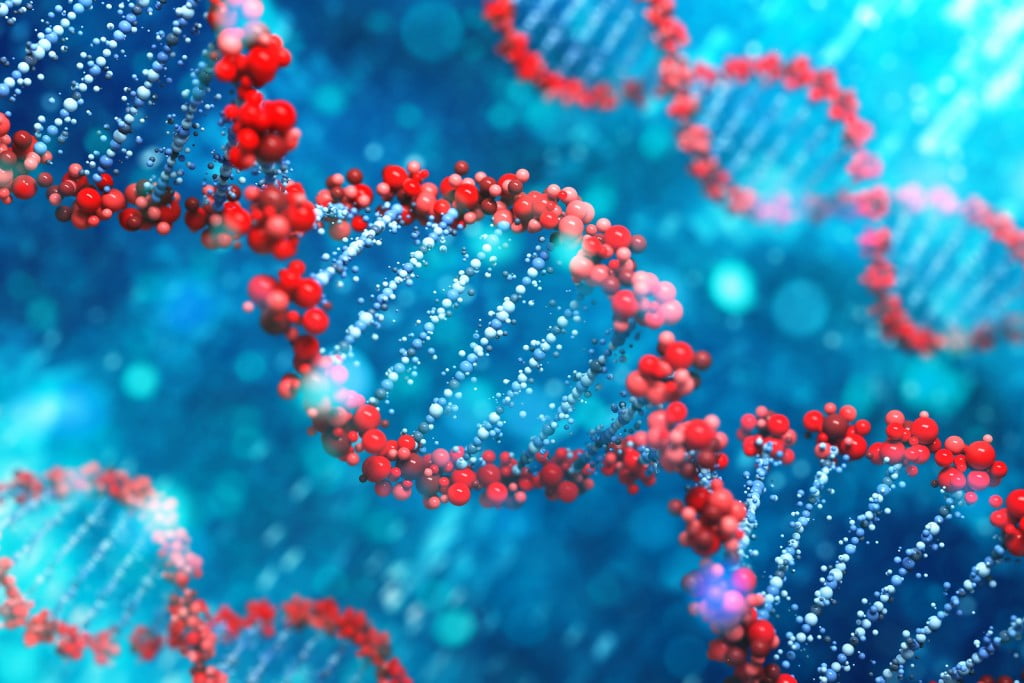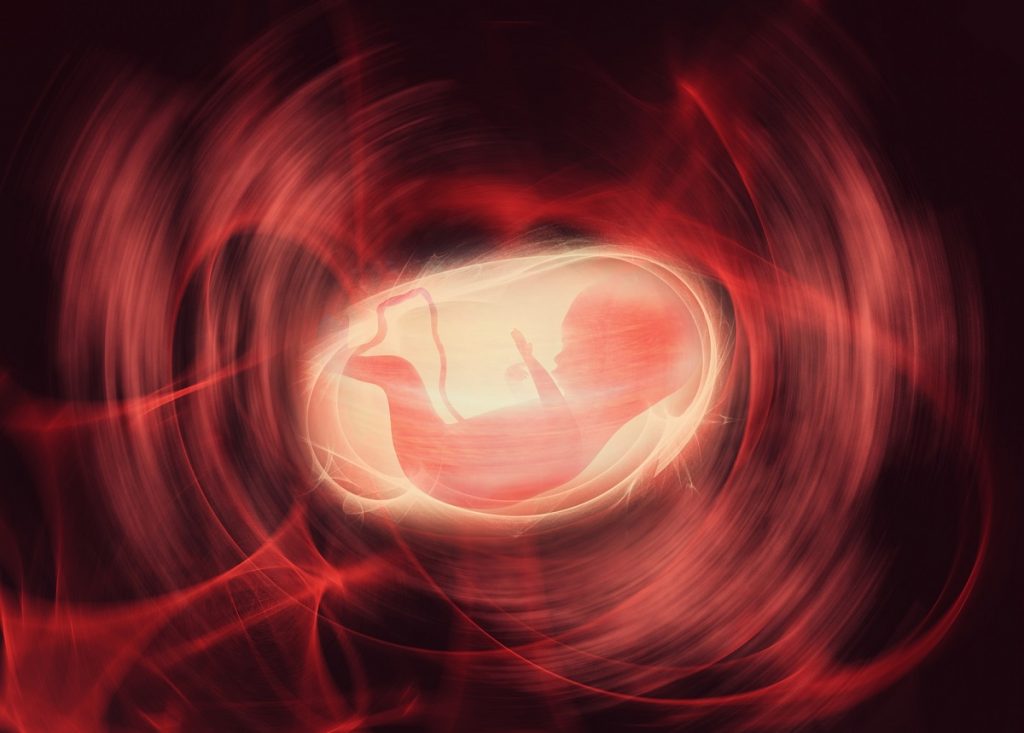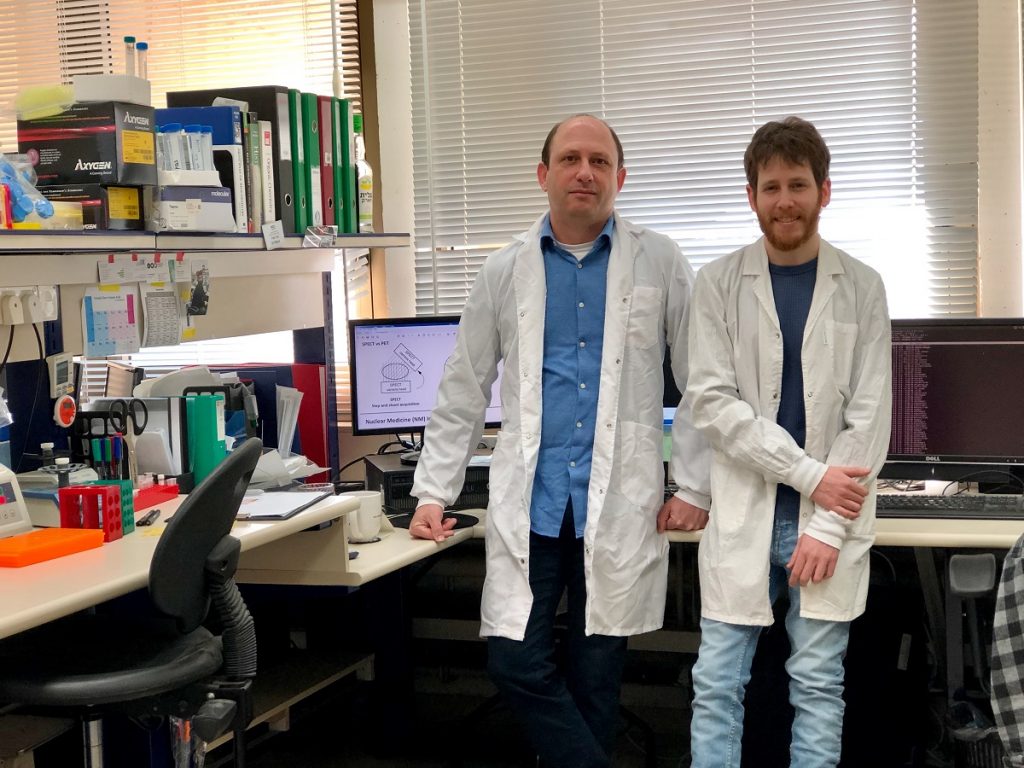Israeli scientists developed a new blood test that could detect prenatal genetic disorders as early as 11 weeks into a pregnancy, allowing for a move away from more invasive methods to diagnose fetal diseases and genetic flaws.
The test was developed by scientists at Tel Aviv University (TAU). It works by sequencing small amounts of DNA in the parents’ blood, after which a computer algorithm harnesses the results to produce a “map” of the fetal genome.
The method could allow doctors to predict mutations with at least 99 percent accuracy – depending on the type – with a single blood test, the university said in a statement.
SEE ALSO: Long-Term Use Of Acetaminophen During Pregnancy Linked To Higher Risk Of Autism, ADHD
The research into the blood test’s potential was led by Professor Noam Shomron of TAU’s Sackler School of Medicine and conducted by TAU graduate student Tom Rabinowitz with Avital Polsky, Artem Danilevsky, Guy Shapira and Chen Raff. They worked in collaboration with Dr. David Golan of the Technion-Israel Institute of Technology and Professor Lina Basel-Salmon and Dr. Reut Tomashov-Matar of the Rabin Medical Center, where the tests were conducted.
The study itself was published last week was published on February 20 in the medical journal “Genome Research.”
It consisted of testing blood samples from three families at 11 weeks gestation, extracting maternal and paternal DNA from their white blood cells and fetal DNA from a placental cell sample. Circulating cell-free fetal DNA from the maternal blood was also extracted, according to the university.
The computer algorithm developed by the scientists then analyzed the fetal DNA, compared it to the genetic variations found in the parents, and mapped fetal mutations. Variations found in the fetus were further examined to assess their clinical significance.
The process allowed the scientists to produce next-generation sequencing (NGS) which they say could lead to non-invasive prenatal diagnosis (NIPD) of a wide range of monogenic diseases simultaneously.
“We sequenced all these DNA samples and created a computer algorithm that utilizes the parental DNA as well as the cell-free fetal DNA to reconstruct the fetal genome and predict mutations,” said Professor Shomron. “We compared our predictions to the true fetal DNA originating from the placenta. Our model is the first to predict small inherited insertions and deletions. The method described can serve as a general framework for noninvasive prenatal diagnoses.”
Sign up for our free weekly newsletter
SubscribeCurrently, parents can undergo blood tests to identify chromosomal abnormalities, such as Down syndrome, and single-gene disorders (SGDs) of paternal origin in a fetus. For single-gene disorders of maternal origin, testing is limited to one genetic disorder at a time, the scientists wrote in “Genome Research.”

There are, of course, also more invasive procedures such as the amniocentesis which can pose some risks to the fetus.
This method developed by the Israeli scientists allows for a single blood test to detect a host of abnormalities.
“Our new procedure is based on fetal DNA fragments that circulate freely in maternal blood and bears only a minimal risk for the mother and fetus compared with such invasive techniques as the amniotic fluid test,” said Professor Shomron. “We will now be able to identify numerous mutations and diseases in a safe and simple procedure available at the doctor’s office.
“The genetic mechanism behind Down syndrome affects a very large portion of the genome and therefore is easier to detect,” explained Professor Shomron. “We performed upgraded noninvasive fetal genotyping, using a novel approach and an improved algorithm, to detect many other diseases that are caused by smaller parts of the genome. This is like looking at a map of the world and noticing not only that a continent is missing, but also that a single house is missing.
SEE ALSO: Israeli Scientists Discover Early Indicators Of Dangerous Pregnancy Complication
Professor Shomron said the “practical applications are endless: a single blood test that would detect a wide range of genetic diseases, such as Tay-Sachs disease, cystic fibrosis, and many others.”
The scientists are now working on further improving the accuracy of the blood test and extending it to detect additional types of mutations.
Related posts

Israeli Medical Technologies That Could Change The World

Harnessing Our Own Bodies For Side Effect-Free Weight Loss

Missing Protein Could Unlock Treatment For Aggressive Lung Cancer





Facebook comments